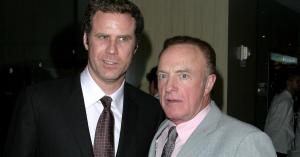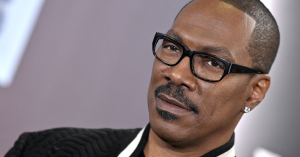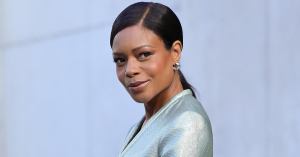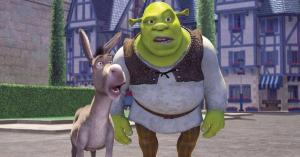Eddie Muller, the host of Turner Classic Movies’ Noir Alley, is one of the best-known experts on noir. He will be joining his fellow TCM hosts Dave Karger, Alicia Malone, Jacqueline Stewart, and Ben Mankiewicz in Hollywood next week at the 2023 TCM Classic Film Festival. In an exclusive interview with PopCulture ahead of the fest, Muller shared what’s most exciting to him about the event and the two surprising titles he lobbied for TCM to include on the lineup.
The TCM Classic Film Festival launched in 2010 and has been held in Hollywood every year since save for the two virtual ones in 2020 and 2021. This year’s event kicks off on Thursday, April 13, and ends on Sunday, April 16. The theme is “You Ain’t Seen Nothing Yet: Celebrating Film Legacies,” with a particular focus on Warner Bros. as the studio celebrates its 100th anniversary. Howard Hawks’ Rio Bravo starring John Wayne was chosen as the opening film.
Videos by PopCulture.com
Of course, there’s more than just Warner Bros. on the schedule, like Universal’s noir classic The Killers and the beloved U.K. film The Red Shoes. There’s also Robert Wise’s unique RKO Western-noir Blood on the Moon and Sam Peckinpah’s bloody and brilliant The Wild Bunch. We talked about all four of these with the “Czar of Noir,” as well as diving into why noir is more of a style than a genre. Outside of TCM, Muller is also the founder of The Film Noir Foundation and hosts the Noir City film festivals.
There are only a few noirs on the schedule this year, but you got a big one – The Killers. Is it going to be exciting to know that some people in that audience might have not seen the movie before?
Eddie Muller: Oh, always. Oh, come on, Daniel, that’s my big thing. If you’ve ever seen me introduce a movie live, you know I always ask how many people in the auditorium have not seen this before. And I mean, you hit the nail right on the head. That’s probably the thing I get most enthused about, presenting a film to people for the first time to those who haven’t seen it before.
I remember a few years ago at the festival, I introduced Rebel Without a Cause. A new restoration of Rebel Without a Cause and it was one of those amazing moments where I looked out at the audience and I just immediately said… There’s some young people in this audience. And I said, “So how many people have not seen this movie before?” And I would say almost two-thirds of the audience raised their hands. And then I said, “How many people have not seen James Dean in a movie before?” And it was about the same amount. And I was like, wow.
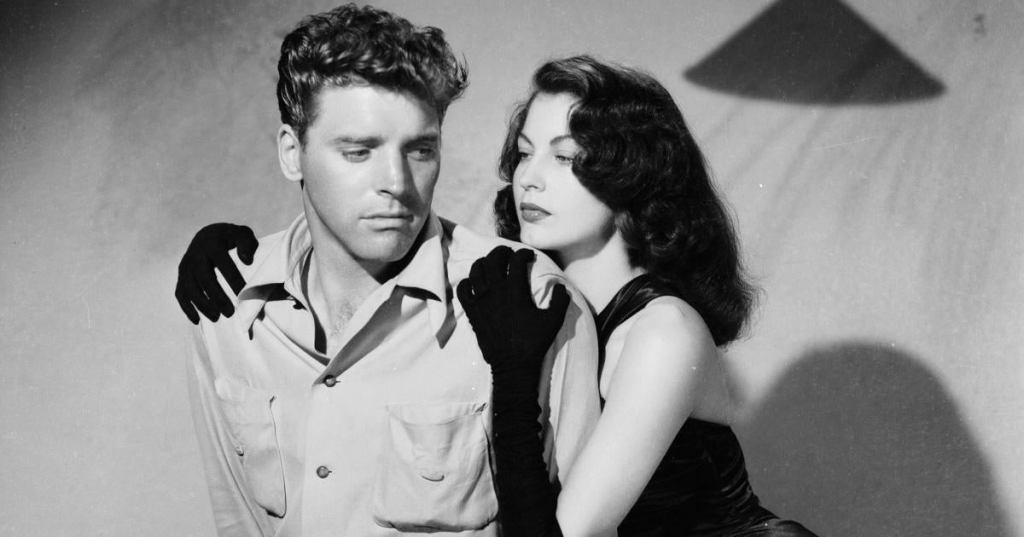
That’s always exciting. At an indie theater where Citizen Kane played on New Year’s Eve, half the audience raised their hand and said that they hadn’t seen the movie before. And I’ve seen it a million times, but it was so cool knowing that there are other people around me who are seeing this for the first time.
Eddie Muller: Well, it’s interesting. This is a big part of what I do, and of course, a major part of what TCM does. It’s the whole thing, to keep this stuff alive for new generations that are just getting their film education. So yeah, I know exactly what you’re speaking of. When I started doing this many, many years ago, because I did introduce films and did film festivals on my own before I was connected with TCM, and I learned very early on from some very astute programmers. I was coming at it like I was the expert and I just wanted to show the really obscure stuff and impress the people who already knew what was what.
I learned very early on that’s not a good strategy because you need to circle back to the stuff that people are just seeing for the first time. So every 10 or 12 years, you go back and you show Double Indemnity. I’m talking as a film festival programmer, you can go back and show Double Indemnity, Out of the Past, The Killers, Touch of Evil, and those touchstone films because people haven’t seen them. When I’m on stage introducing a movie, I look around to find the youngest people in the audience. And I try to direct my comments to them.
It’s interesting seeing that tracking parallel to the true crime boom we’ve got, that never seems to want to end. And I think that also attracts younger audiences to see these crime movies. What do you think really surprises them the most when they see these movies that were made 60, 70, or 80 years ago? They’re seeing them for the first time and they’re surprised that these are pretty dark stuff.
Eddie Muller: Yeah, they are pretty dark. Well, it’s funny you go back to Double Indemnity for a second, or because it’s showing at the festival, The Killers. I’ve shown both of those movies in schools where I’ve been invited to come, not middle school or anything, I think that might be a little much. But high schools and art schools and universities. I show the scene where Fred MacMurray meets Barbara Stanwyck in Double Indemnity, [which] is a classic scene to introduce young people to film noir because it explains everything. I say, “What do you think is actually happening in this scene?” And the kids don’t miss it. They know exactly what’s happening. Even though it’s done in a way that is long gone because it’s all done through innuendo and through dialogue and through the lighting and all this stuff.
That allows me to then explain to them how they used to be a production code and you couldn’t do this. So artists had to figure out creative ways to circumvent the code to get the point across. That fascinates younger audiences. Like, wow, the world was different. Because if you don’t give them that context, they’re going to think, “Boy, those movies were corny. Who’d believe that?” Then I’d say to them, quite bluntly, “So this is a movie that your grandparents were going to see on a date. What do you think the point of all that was?” And I say, “Yeah, your grandparents, they had sex. I hate to break the news to you, but they did. They had sex and these movies were their…” Well, I was going to say something that I thought better of there.
You were talking about the most obscure stuff, and you don’t really always want to show that at festivals that you’re trying to bring in a big crowd, but there is an obscure noir adjacent movie this year. They’ve got Blood on the Moon, which is a Western noir. You’ve even got Robert Mitchum in that. Is that one of the best examples you can think of, where the filmmakers put noir in an unexpected context?
Eddie Muller: Sure. And I mean, to me, that’s indicative of how noir really was a movement in Hollywood. You can’t really call it a genre because it’s the crime genre, that’s what most of the movies fit into. But as an artistic movement, a film like Blood on the Moon or something like Pursued, which is another Western noir, shows how that style [that] crossed genres. So there were war movies that looked like noir, there were westerns that looked like noir, and even on occasion, there was a musical or something that could be considered noir. That was just part of that whole, well, that’s why I insist on calling it a movement and not a genre.
It’s sort of the argument a lot of animators have when they’re trying to prove that animation isn’t a genre, it’s just a style by which to tell a story.
Eddie Muller: Absolutely. Yeah. No, I totally agree with that.
Outside of noir, you do get to introduce some movies that aren’t at noir these festivals. What’s one movie that’s not a noir that you really enjoy introducing or wish you could introduce at the festival?
Eddie Muller: Well, the two movies that I demanded, that I said nobody else gets to introduce these… It’s an odd combination. It’s The Wild Bunch and The Red Shoes. Those are the two movies that I really … I have introduced The Red Shoes before and I’ve actually shown it at my film noir festival because I consider the themes of that movie to be very, very noir. But it is obviously a movie about art and creativity and the obsessiveness that is sometimes required of artists to achieve their greatest work. Which has a certain … obsession is a theme of a lot of noirs.
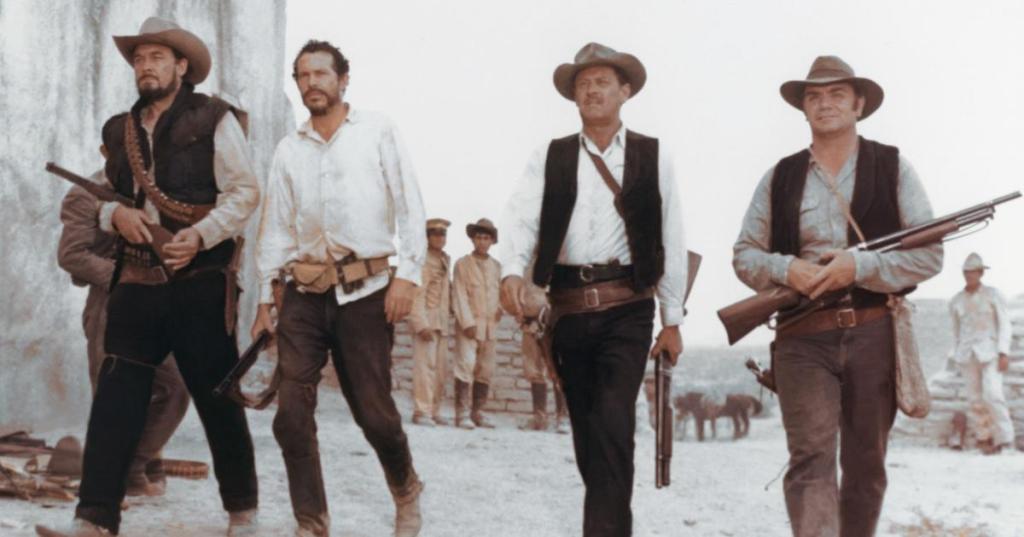
The Wild Bunch, which is, in my estimation, the greatest western ever made, is interesting because it’s also kind of a heist picture. Nobody thinks of it that way, but it is. I mean, they’re a gang of thieves that are basically hired by this general to steal munitions off the train. And I mean, it’s a heist picture. That scene of them robbing the train is, I mean, everybody talks about the end of The Wild Bunch, justifiably so, as one of the great battle scenes of all time. But that train robbery is extraordinary. I mean, it’s as good a heist scene as has ever been done in a movie.
When I saw that on the schedule, I said, “I’m going to that one.”
Eddie Muller: Good, you’ll see me introduce it and my challenge is to not do an introduction that is as long as the movie… I have a great fondness for that movie. Sight and Sound asked me to contribute my list of the 10 greatest movies ever made and The Wild Bunch is on that list. So I was very excited to have the chance to introduce it.
I would put it there too. I mean, all Peckinpah movies are just in a class of their own.
Eddie Muller: It’s very interesting that you say that because I feel that, when I was growing up, he was the most controversial film director in the world. Now I don’t think younger people really know that much about him. I think that films have kind of been marginalized over the years, maybe not The Wild Bunch, but some of the other stuff is. I mean, the hardcore Cineasts know about Ride the High Country and all that, but people don’t even want to talk about films like Straw Dogs or Cross of Iron or stuff like this because they’re just too tough for some people’s sensibilities. But I can’t think of a more powerful director from that era than Peckinpah and how influential he was.
The violence is one thing, but it’s the way he messes with time in the movies and the way he edits the film are extraordinary. I don’t want to get into the weeds with this because you’ll hear me introduce the film when I do, but it’s fascinating to realize that there was nothing in The Wild Bunch that was storyboarded. He did all of that on location. It was like, now we’re going to do this. Now we’re going to do that. I mean nobody knew. He had the entire picture in his head. Which, the definition of a director is, he’s the guy who has to carry the entire movie in his head, from the beginning. And how he expresses to the crew what they’re going to get is, that’s his job. And man, The Wild Bunch is in a class by itself.
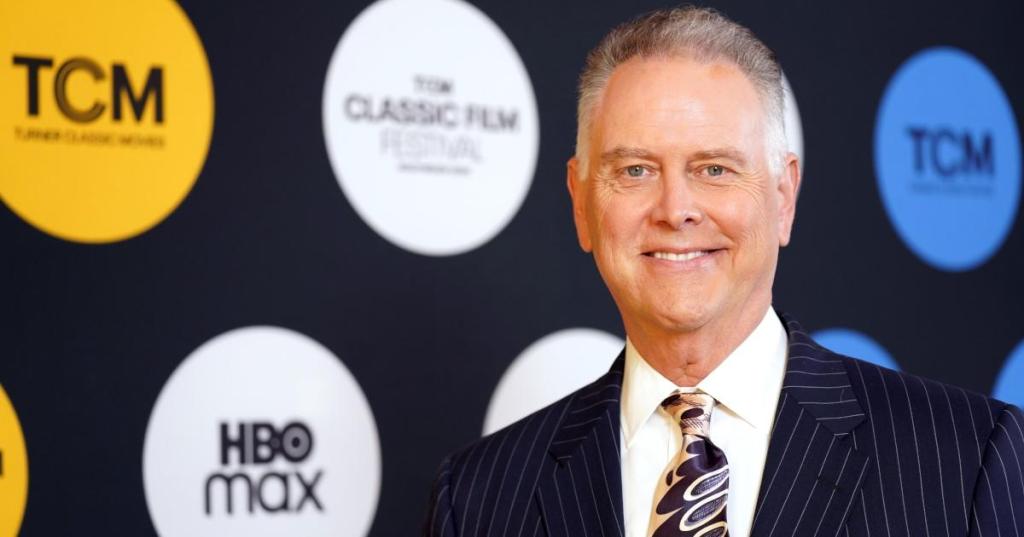
I could probably talk to you about this stuff for hours, but I did just want to ask one more question because Warner Bros.’s 100th anniversary is a big part of the festival this year. Was there any particular Warner Brothers movie that … I know Larceny Inc. is the gangster movie they’re playing this year? Was there any part of that studio’s history that you really like bringing up when you are doing noir festivals and introductions?
Eddie Muller: Well, it’s interesting because they were so synonymous with gangster movies in the 1930s, but it’s interesting that noir grew out of that. It’s a different thing. I mean, the Warner Bros. gangster movies do not necessarily feel like noir. The Public Enemy and Little Caesar and stuff like that, they’re about criminals but they don’t really feel like noir. The style changed, and I give all the credit in the world to Humphrey Bogart for that. Because it was really his performance in The Maltese Falcon that really changed everything. Because he was the fast-talking, rat-a-tat guy, just like [James] Cagney and [Edward G.] Robinson. And to a lesser extent George Raft in the ’30s. But then, when John Houston directed him in The Maltese Falcon, he slowed everything down and his delivery changed everything.
Then all of a sudden, that was a new model for this anti-hero, which is what Sam Spade is. He’s not an officer of the law. He’s operating outside the law. That character became so influential and Bogart’s portrayal of that character was immensely influential because as opposed to the ’30s, where actors were basically waiting to deliver their lines because they were directed to speak so fast, you could just see them waiting for their cue. Bogart changed that all because he really listened to the other actors. I mean, that was what Sam Spade was all about. He wasn’t the big talker, he was the big listener. Let these people hang themselves. And so his style really set a template for the way actors played noir.

